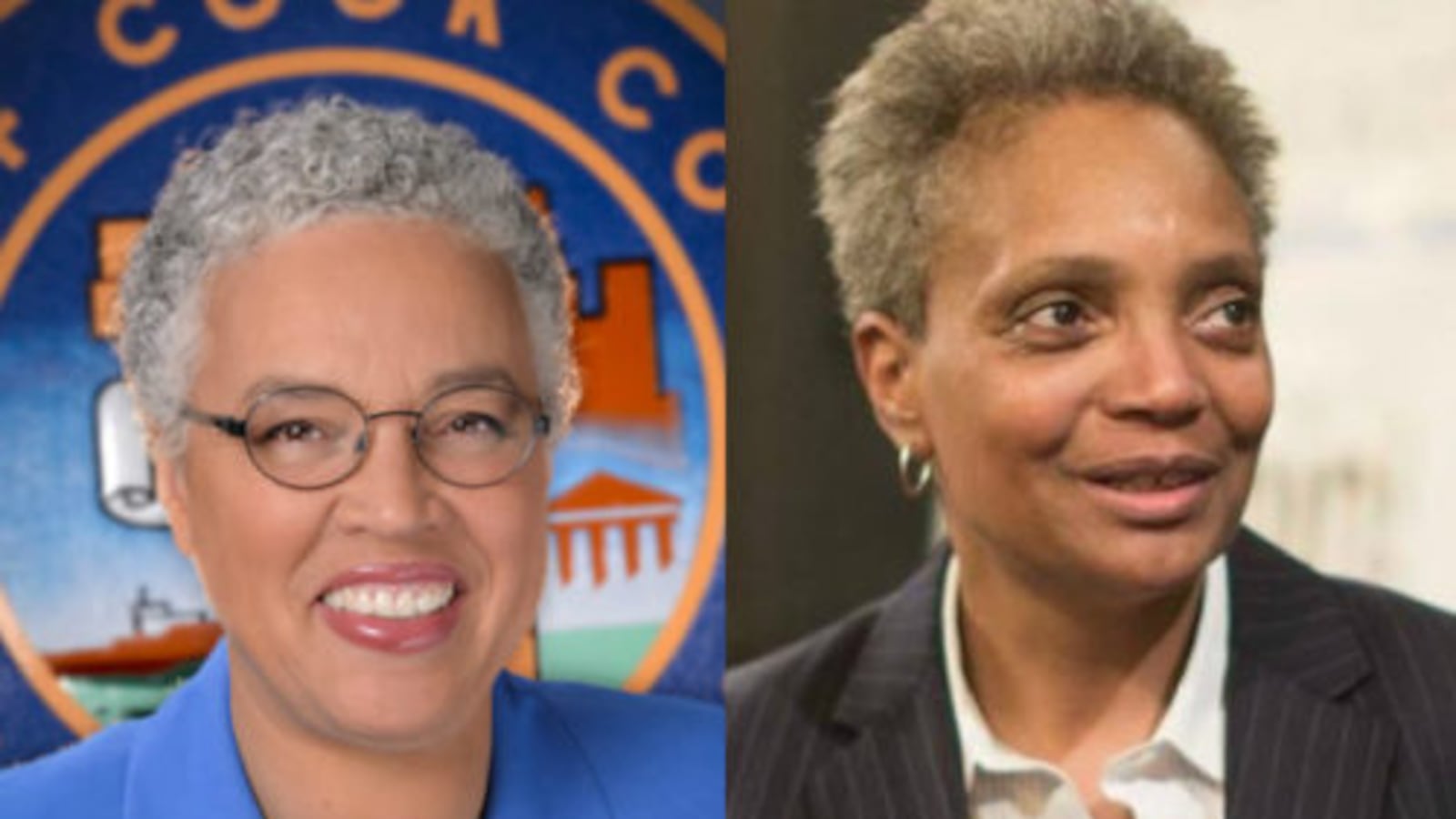How would Chicago shift from mayoral control to an elected school board and how would the city’s next mayor protect the process from special interests?
Questions about district governance topped the list of what Chalkbeat readers want to ask Toni Preckwinkle and Lori Lightfoot, the two women who are campaigning hard to be the city’s next mayor and de facto head of schools.
More than 140 readers — 60 percent of whom identified as educators or as working in a school-related field — answered an informal Chalkbeat poll that solicited reader questions for the two candidates headed to the runoff.
Chicagoans will vote in a municipal runoff on April 2.
Both Preckwinkle, who is president of the Cook County Board of Commissioners, and Lightfoot, a former federal prosecutor, have said they’d support shifting the composition of the city’s school board from appointed officials to elected ones.
The two candidates have also voiced similar responses to questions about charter moratoriums as the district faces steep enrollment declines.
They have offered differing responses to the prevailing question of whether to retain the city’s current schools chief, Janice Jackson. Preckwinkle has said she’d keep Jackson; Lightfoot said she’d wait and see.
But neither Preckwinkle nor Lightfoot has offered too many details about how they’d grapple with some of Chicago schools’ most intransigent problems, including ones that readers told Chalkbeat they care deeply about. Where will they find more funding to help bolster shrinking neighborhood schools? Will they take a political risk and outline how they’d conquer a threatening deficit?
Readers who took Chalkbeat’s poll also said they wanted to hear more about how each candidate would more equitably distribute money to schools on the South and West sides of Chicago; whether the next mayor would prioritize class size reductions and additional staffing; and how they’d approach dealing with the union on issues such as teacher benefits and pensions.
Sixty-nine percent of readers who took the anonymous five-question poll said they were undecided between the two candidates. Of those who’d decided, 25 percent said they would vote for Lightfoot and 5.7 percent would vote for Preckwinkle.
On a scale of 1 to 5, with 1 being “not very important” and 5 being “very important,” 67 percent of respondents ranked education policy at the top, a very important consideration when casting a ballot. Thirty percent ranked it a 4.
Multiple readers also asked how Preckwinkle, who is backed by the teachers’ union, would balance public and union interests in teacher contract negotiations. The teachers union contract is set to expire this summer and contract bargaining is underway.
Below are some other questions Chalkbeat readers said they wanted to ask the candidates.
District governance
How will you keep special interests out of an elected school board?
Will you keep Janice Jackson as schools leader?
Do you plan to retain current Chicago Public Schools management?
Will you spend time listening to current CPS employees before launching new initiatives?
How will better structures and transparency be built into CPS?
Fiscal stability
Will you keep the student-based budgeting model or consider other models that consider community resource needs?
How do you plan to both honor the current pensions but support Chicago becoming more fiscally stable?
Staffing
How will the next mayor work to ensure adequate, equitable funding for schools, including services like nurses and counselors, special education, and money for capital improvements and repairs?
Underenrollment
What’s the plan to stop enrollment loss and try to grow the overall student body?
What do you plan to do about the ever-shrinking enrollment of CPS schools? Will you consider closing schools if there is under a certain number of students in that school?
Equity
Our public schools are segregated; more specifically, selective-enrollment schools are segregated racially, socioeconomically, and academically. How can you fix these disparities?
What can we expect from you regarding English as a Second Language and special education students? These students tend to be high risk since they often fall into the over-hype of university/college with below-standard preparation, or they fall through the cracks of public education.
What non-education policies will you prioritize to ensure that all students can be successful at school (e.g., housing, food security, public transportation, etc.)?


